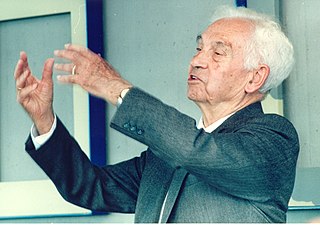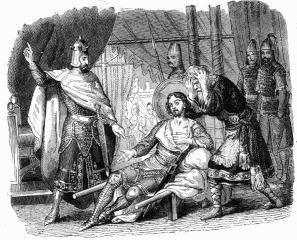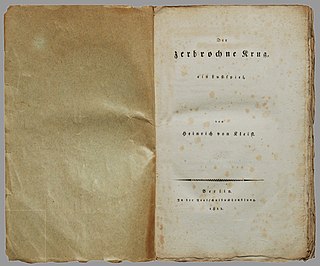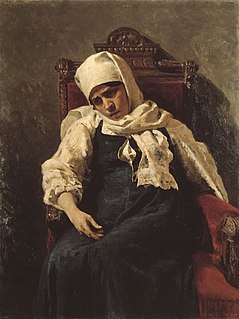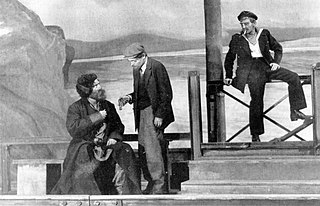| The Son | |
|---|---|
| Written by | Walter Hasenclever |
| Characters | The Son The Tutor The Friend The Fräulein The Father Cherubim Von Tuchmeyer Prince Scheitel Adrienne Police Inspector |
| Date premiered | 1916 |
| Place premiered | Dresden |
| Original language | German |
| Subject | Intergenerational conflict |
| Genre | Expressionism |
| Setting | The present (1914), over 3 days |
The Son (German : Der Sohn) is a five-act Expressionist play by the German playwright Walter Hasenclever. [1] It was the first self-proclaimed, full-length Expressionist play to be produced, though its dramatic structure is more or less realistic. [2] It takes as its subject the conflict between the generations and a rejection of the world in general by the young. [3] It is a semi-autobiographical work. [4]

German is a West Germanic language that is mainly spoken in Central Europe. It is the most widely spoken and official or co-official language in Germany, Austria, Switzerland, South Tyrol (Italy), the German-speaking Community of Belgium, and Liechtenstein. It is also one of the three official languages of Luxembourg and a co-official language in the Opole Voivodeship in Poland. The languages which are most similar to German are the other members of the West Germanic language branch: Afrikaans, Dutch, English, the Frisian languages, Low German/Low Saxon, Luxembourgish, and Yiddish. There are also strong similarities in vocabulary with Danish, Norwegian and Swedish, although those belong to the North Germanic group. German is the second most widely spoken Germanic language, after English.

Expressionism is a modernist movement in drama and theatre that developed in Europe in the early decades of the 20th century and later in the United States. It forms part of the broader movement of Expressionism in the arts.

Walter Hasenclever was a German Expressionist poet and playwright. His works were banned when the Nazis came to power and he went into exile in France; however, there he was imprisoned as a "foreign enemy". He died in Les Milles near Aix-en-Provence.
It was written in 1912, first published in 1914, and first performed in 1916 at the Albert-Theater in Dresden, although Hasenclever had read the play at the literary cabaret Das Gnu in early 1914. [5] Ernst Deutsch played the Son to great acclaim. [6]

Dresden is the capital city and, after Leipzig, the second-largest city of the Free State of Saxony in Germany. It is situated in a valley on the River Elbe, near the border with the Czech Republic.

Cabaret is a form of theatrical entertainment featuring music, song, dance, recitation, or drama. It is mainly distinguished by the performance venue, which might be a pub, a restaurant or a nightclub with a stage for performances. The audience, often dining or drinking, does not typically dance but usually sits at tables. Performances are usually introduced by a master of ceremonies or MC. The entertainment, as done by an ensemble of actors and according to its European origins, is often oriented towards adult audiences and of a clearly underground nature. In the United States striptease, burlesque, drag shows, or a solo vocalist with a pianist, as well as the venues which offer this entertainment, are often advertised as cabarets.

Ernst Deutsch, also known as Ernest Dorian, was a Jewish Austrian actor. In 1916, his performance as the protagonist in the world première of Walter Hasenclever's Expressionist play The Son in Dresden was praised. Deutsch also played the antihero Famulus in Paul Wegener's The Golem: How He Came into the World in 1920. He is known by English-speaking audiences for his role as Baron Kurtz in Carol Reed's 1949 film noir, The Third Man.
The play ends with the Son's parricide of his father, after which he "strides triumphantly over his father's corpse into a future full of glorious potential." [7]
Parricide is defined as:
